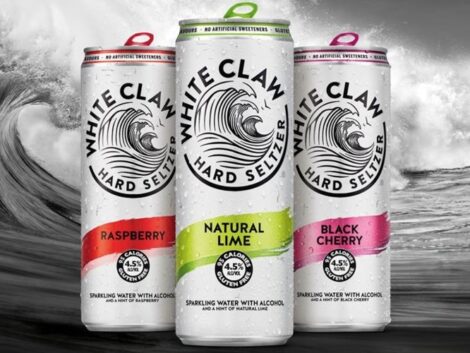Global hard seltzer to reach $11.9bn by 2027
The global hard seltzer market is projected to reach $11.9billion by 2027, at a CAGR of 13.6, according to a new report by IMARC Group.
The report, titled “Hard Seltzer Market: Global Industry Trends, Share, Size, Growth, Opportunity and Forecast 2022-2027”, offers a comprehensive analysis of the industry, which comprises insights on the global hard seltzer market.
The hard seltzer market reached a value of $5.5billion in 2021, but is predicted to continue its sizeable growth.
Hard seltzer refers to a range of alcoholic, carbonated beverages, most often packaged in cans for portability.
Most brands of seltzers consist of fermented cane sugar and added flavourings with 4.5-7% ABV containing a hundred calories per can or less.
In contrast, other brands create malt liquor from dried and soaked malted barley and prepare it for fermentation, which breaks down complex sugars and produces alcohol.
They are available in various familiar fruity flavours, such as tangerine, grapefruit, black cherry, lime, and watermelon, as well as complex flavour profiles, such as lemon agave hibiscus, melon basil and cucumber peach.
Covid-19 Impact Overview:
The coronavirus disease (COVID-19) outbreak has negatively impacted the hard seltzer market as major shutdowns have resulted in a temporary halt to the production in several regions.
In addition to this, suspended and postponed assembling tasks across significant assembling centre points have created a substantial log jam in the manufacturing process.
This has negatively impacted product launches and timely supply to the market.
Moreover, numerous restrictions amid the ongoing pandemic and continuous lockdowns have adversely affected buyer requests as there has been a sharp downfall in consumer demand for hard seltzers across the globe.
Global Hard Seltzer Market Trends and Drivers:
The global market is primarily driven by the shifting customer preferences towards beverages with low alcohol, calorie, and carbohydrate content. This is further supported by the growing health consciousness among the masses, thereby providing a major boost to the hard seltzer market.
Also, the increasing popularity of ready-to-drink (RTD) beverages is acting as a significant growth-inducing factor for the market.
Furthermore, the widespread awareness regarding the benefits of gluten-free hard seltzer beverages among people with celiac disease, inflammatory diseases and autoimmune disorders are also creating a positive market outlook.








